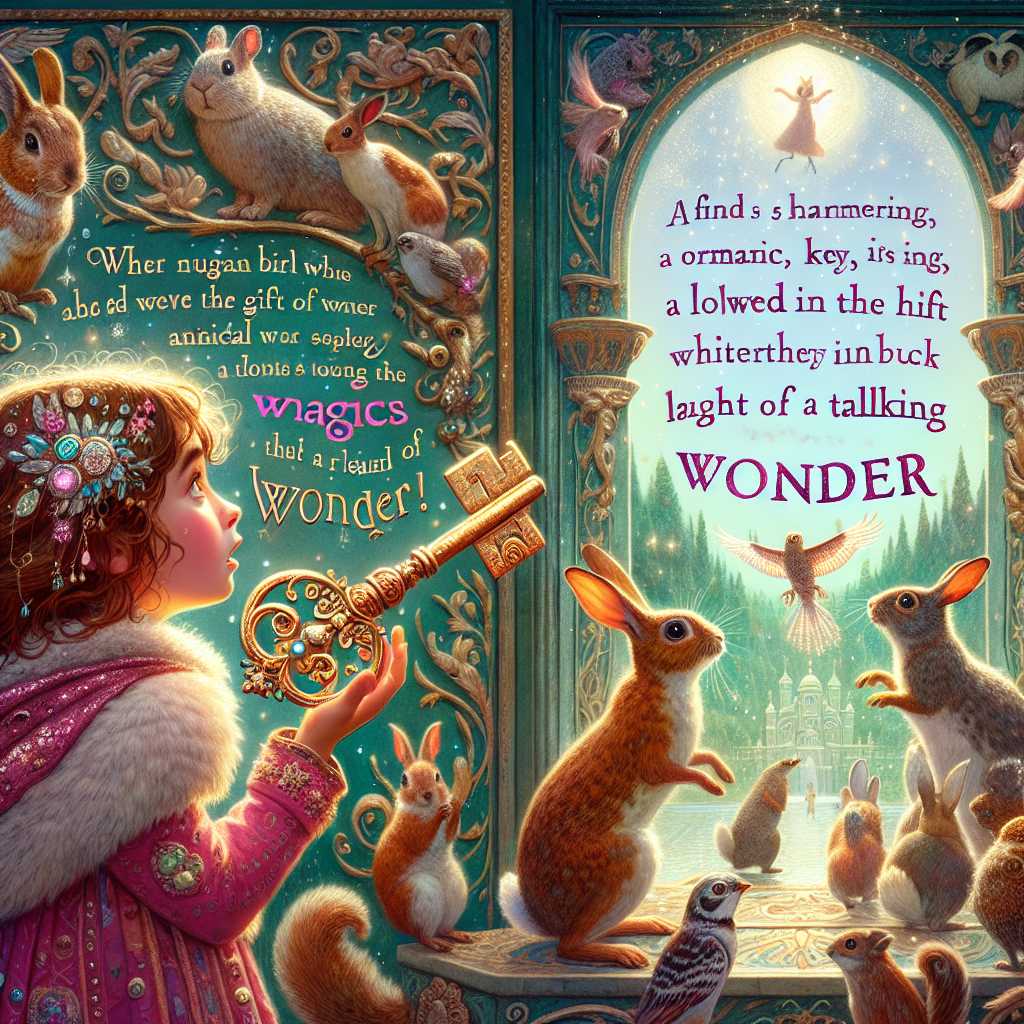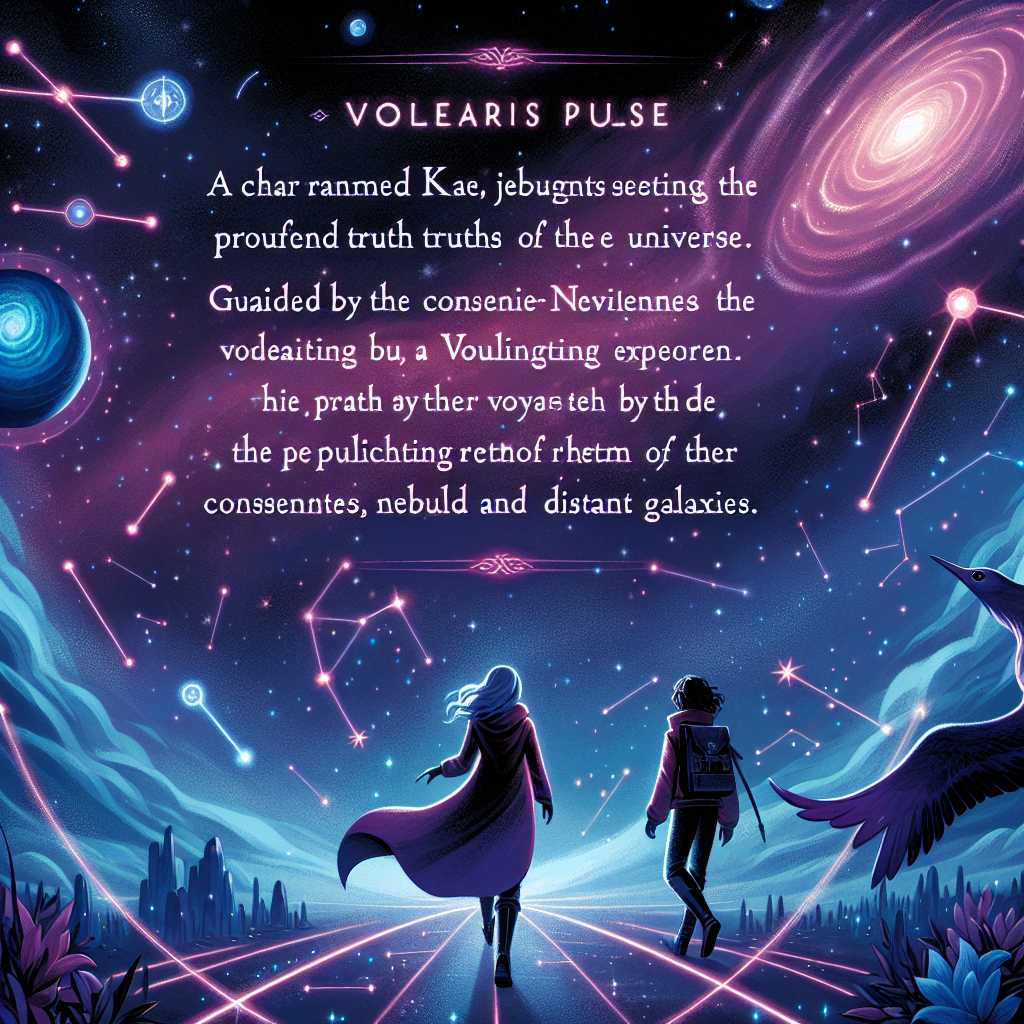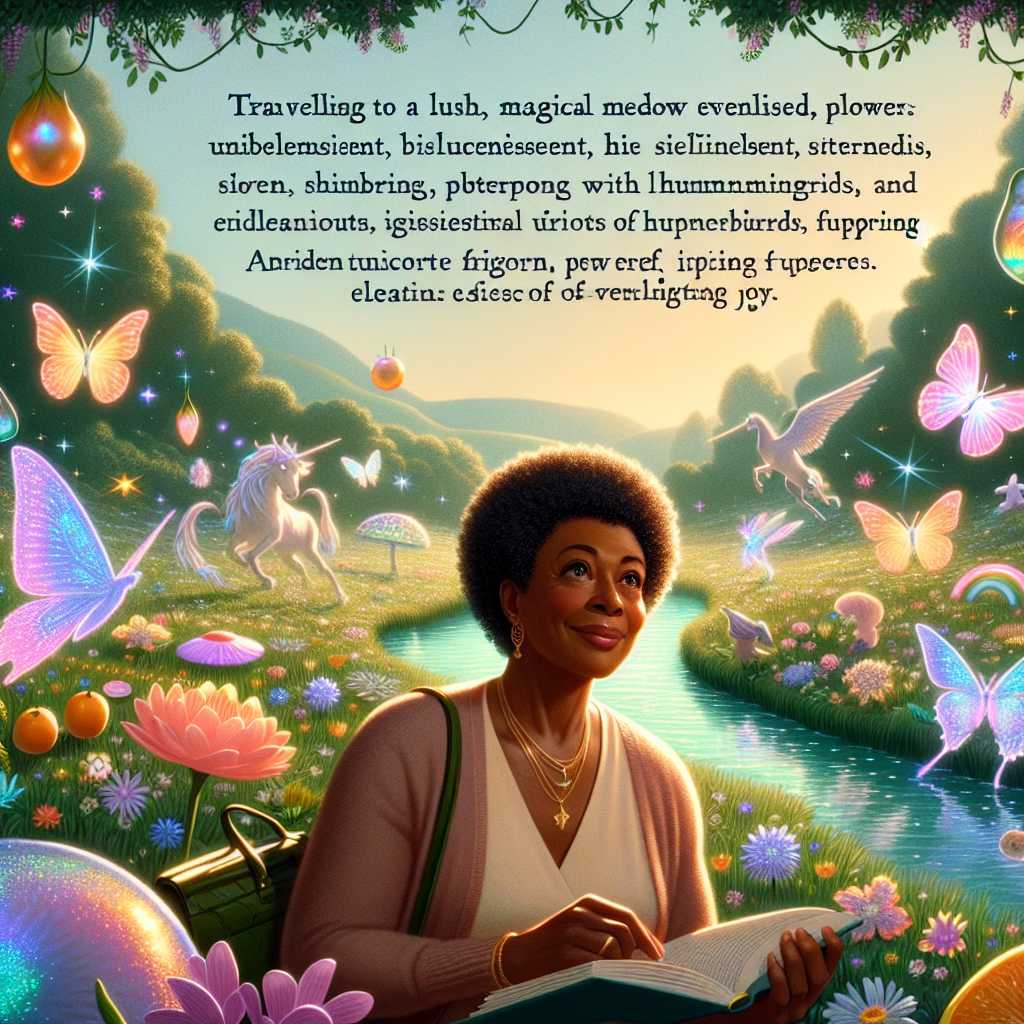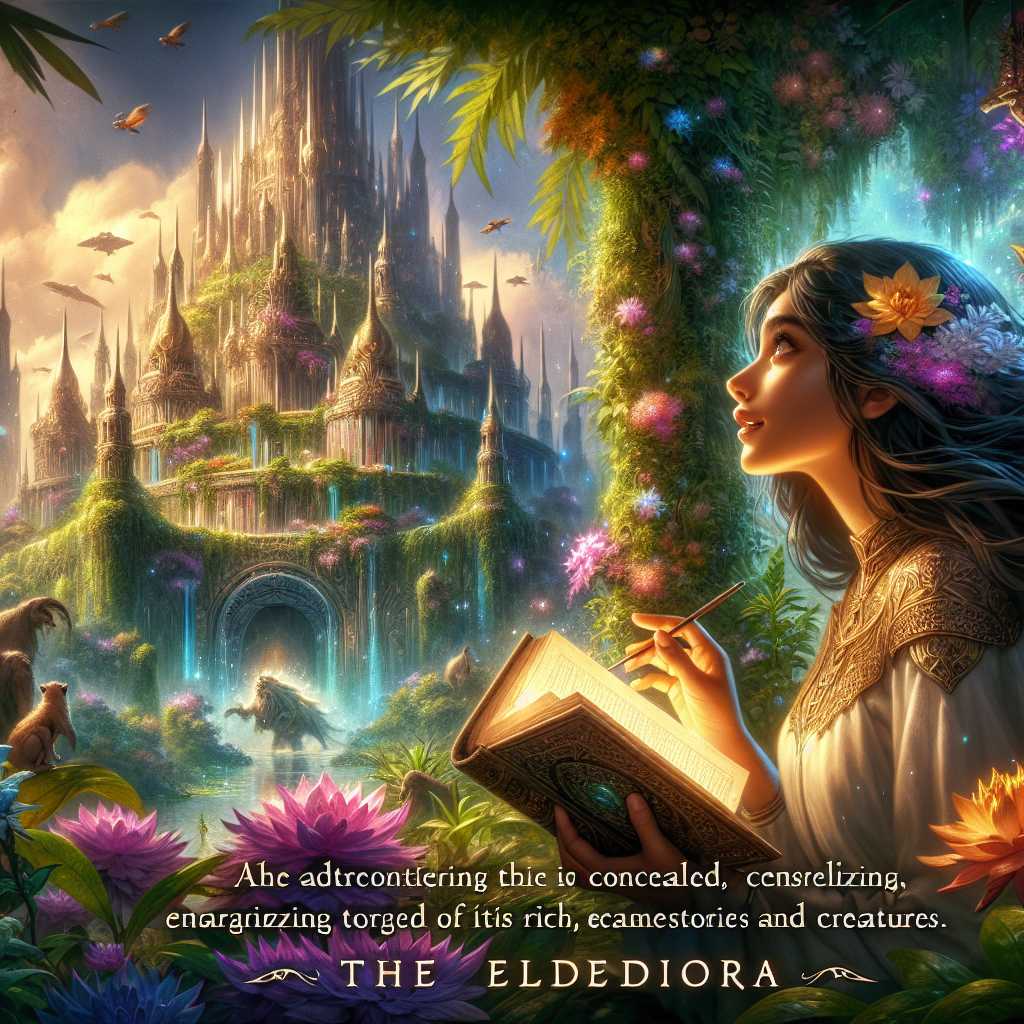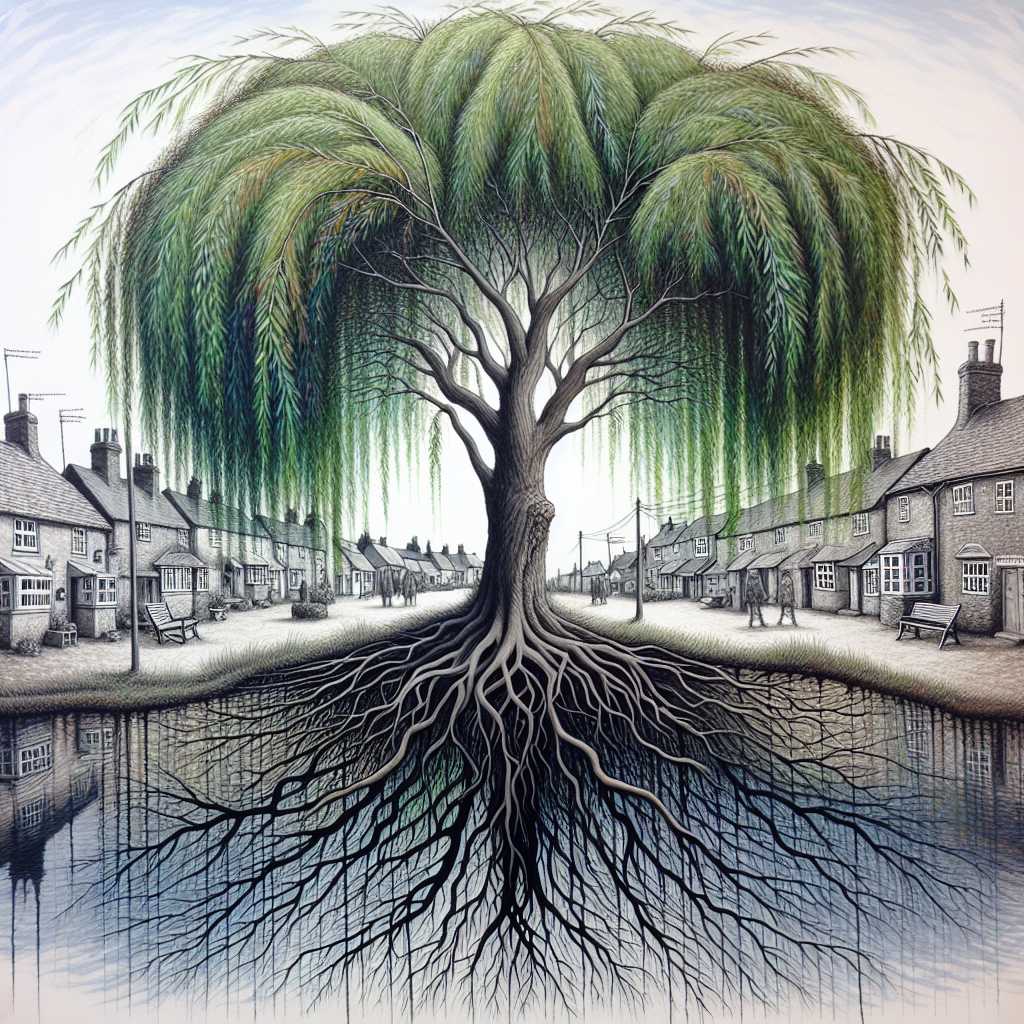
In a village nestled in the crook of a winding river, surrounded by lush fields and dense forests, there stood a mighty willow tree, as ancient as time itself. This tree, with its sweeping branches and whispering leaves, was the heart of the village, a living chronicle of all that had transpired there.
Once, when the world was young and the skies were painted with vibrant hues of hope, the willow mirrored the laughter and joy of a thriving village. The people danced beneath its sprawling branches during harvest festivals, it sheltered lovers sharing secret promises, and children wove their dreams into its branches.
The willow was more than a tree; it was a sentinel, a keeper of stories.
Yet as the years rolled across the village like a gentle yet relentless tide, the vibrant life began to ebb like the waning tide. The sun, a faithful companion over the ages, began to set upon a land veiled in sorrow.
The autumn of the village commenced when the droughts arrived – creeping like specters across the fields. The once-rich soil cracked beneath the relentless sun, and the river, lifeblood of the village, began to shrink, leaving behind a bedraggled and barren scar, where once it laughed and gushed with life.
The crops, once bountiful, dwindled, each yield a shadow of the last. The villagers persevered, clinging to their dreams as one does to a rapidly fraying rope, hoping for rain, praying for salvation.
"The willow knows," the villagers would often whisper, glancing towards the ancient tree, its leaves shimmering like a choir of emeralds. "The willow understands our plight."
But as time wore on, the whispers of hope began to fade, replaced by a lament that echoed through the empty streets, the vacant homes. The once bright laughter of children was replaced by the somber silence of abandonment as families left, seeking a better fortune elsewhere.
Through it all, the willow tree remained rooted, a steadfast remnant of happier times. It stood as a stoic witness to the desolation that cloaked the village like a shroud. Its branches, which had once danced in joyous harmony with the breezes, now hung as if in mourning, draped over the ground like the tattered remnants of dreams.
There was, however, one soul who remained, tethered as much by choice as by fate: Old Man Edgar. He had been a part of the village for as long as anyone could remember, his skin weathered by time, his eyes still sharp with memories. Edgar had witnessed the prospering and decline, and in his heart, he carried the stories the willow whispered to him in the sighing wind.
Every day, Edgar could be found beneath the willow, tracing its gnarled roots with his calloused hands. As autumn gave way to a cold winter, he watched as each leaf drifted away, a fragile parchment of time lost to the winds.
Winter was a cruel visitor that year, bringing with it a chill that seemed to seep into the very bones of the earth. Yet still, Edgar endured, tending to the last vestige of the village's spirit: the willow.
He would often speak to it, his voice a rasping echo beneath the barren bowers. "You've been here for us through everything, haven't you? Perhaps you need my company now more than ever," he'd chuckle softly, even as he felt the weight of loneliness settle over him like the heavy snow.
Then, one quiet day, as winter turned to spring, Edgar sat with his back pressed against the willow's trunk. The sun was a gentle balm, and a faint whisper of warmth caressed the land, promising renewal.
As he drifted into a deep slumber, a peaceful smile graced his face, and his breath slowed until it stopped altogether. The willow, in its ageless wisdom, seemed to cradle him, a mother comforting a tired child.
With the coming of spring, the first rains began to fall, softening the earth, coaxing green life back to the fields and coaxing forth new leaves from the willow's branches. As new families, drawn by tales of a quaint village reborn, began to settle and bring laughter back to the fields, they found the willow standing strong. And beneath it, the simple gravestone of Old Man Edgar.
The villagers spoke often of Edgar's bond with the willow and of the tree's newfound vigor. Under its rustling canopy, children laughed and played once more, couples pledged their love, and the stories of old were retold, stitching the fabric of the village anew.
The willow stood as it always had, a silent witness to the inexorable ebb and flow of life.
Time moved forward, as it always does, but etched into the bark of the willow was a testament to endurance, to remembering, and above all, to the hope that springs eternal from the ashes of despair.
```



